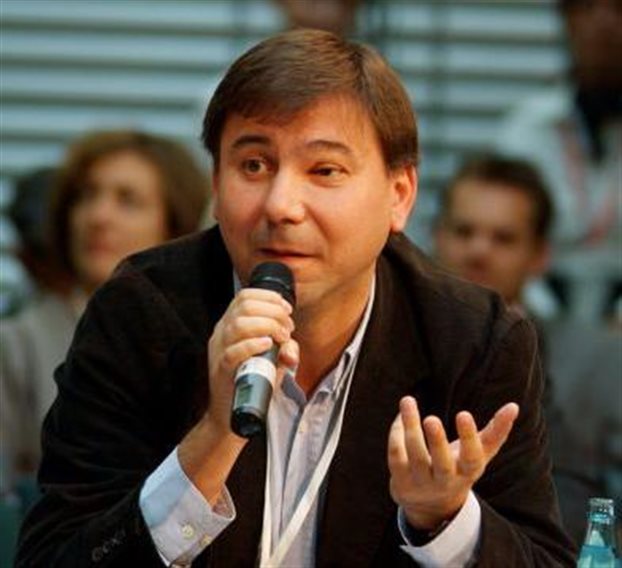www.europe.bg
Crisis, poverty and unemployment... Following the crash and economic collapse, the European dream of peace, security and prosperity has turned into a nightmare for millions of people in the EU. What are the causes of this and what is the possible direction from here onwards? What is the probability of a separation and return to nationalism? "The only thing which is certain is the fact that the united Europe which we have known for sixty years no longer exists. However, politicians have not found the courage to admit this. Also, they cannot suggest an inspiring new vision to the 500 million EU citizens," said for To Vima Ivan Krastev, a Bulgarian political scientist, analyst, writer and journalist.
Do you agree with those who say that the EU dream has turned into a nightmare?
I cannot say that it is a nightmare, but I believe that the European Union does not exist anymore, at least not as we knew it in the past. In my opinion, it is not so important what the form of the new union will be. Instead, we should be asking why this Europe, which was the epicentre of a lot of dreams, has fallen apart. The answer is simple: all the pillars which were used for the establishment of the EU and the justification of its existence have been destroyed.
Why?
The first and main pillar was the promise of peace after the bloody Second World War. It is worth noting that a survey among German students aged 14-16 showed that every third student did not know who Hitler was. This does not mean that nostalgia for fascism in Germany does not exist. It means that a whole generation takes peace for granted. Today, the belief that the EU still derives its legitimacy from the roots of war is an illusion. The Cold War was the second factor which facilitated the emergence of a geopolitical union. However, it is also a phenomenon which no longer exists.

Do you believe that the economic crisis in the Eurozone was the decisive moment?
Actually, the promise of prosperity is the third pillar which has been destroyed. The EU is still very rich in general, with the exception of countries such as Bulgaria and Greece. 60% of Europeans living in the rich North think that their children will not live better in the future. The question is what we can expect from the future. Our hope for a better future was a strong source of legitimacy, but it has also died out.
The last, but not less important, pillar is the welfare state. The existence of reliable social justice is undoubtedly an integral part of the identity of the European Union. However, we cannot be sure that it will still be viable, bearing in mind global competition and major demographic changes in Europe. 12% of the EU population will be over 80 years old by 2060, which means that Europe is getting old.
Can the lack of convergence between the rich and the poor in the EU be overcome easily?
The poor countries which entered the EU expected that they would gradually gain benefits from their participation in the club of the rich. Several years ago, this expectation was still valid. However, according to the economic outlook for the next 10 years, a country like Greece may remain as poor as it was when it joined the European Economic Community compared to Germany.
Do you think that solidarity will return or countries will turn to nationalism?
The crisis resulted in the emergence of new divisions in Europe. There is no longer a division between East and West within the EU. There are more significant differences, such as disunity, lack of solidarity and a rise of populist nationalist goals. Bearing in mind the current situation in the EU, the revival of solidarity is only a dream, since natural solidarity within countries does not exist at EU level. On the contrary, discriminating stereotypes have appeared ("the lazy" southerners, for example). "We" is often mentioned in terms of Europe, but what exactly does it mean? If the EU wants to exist in the future, it is absolutely necessary to define what "we" means in the early 21st century.
Who is Ivan Krastev?
Ivan Krastev is a political scientist, Chairman of the Centre for Progressive Policy in Sofia and analyst at Robert Bosch Stiftung in Berlin. He is also a founding member of the European Council on Foreign Relations and the Centre for European Policy Analysis, a writer and journalist, including for the Guardian. His latest book in English translation is entitled "Can Democracy Survive When We Don't Trust Our Leaders?" published by TED Books, 2013.
* The title is GRReporter’s